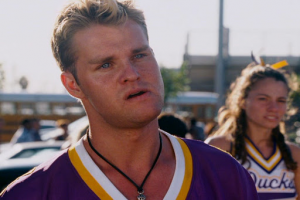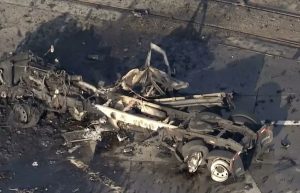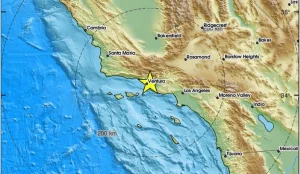A massive sewage spill near the city of Long Beach in California has led to the closure of all beaches and swimming areas along a seven-mile stretch. The spill was initially announced by city officials in a news release on Friday, but the latest information suggests that estimates about the extent of the spill were well off the mark.
The spill first occurred in the city of Carson due to the failure of a 48-inch sewer main line and was detected initially on Thursday afternoon. When city officials broke the news, they had announced that “approximately two to four million gallons of untreated sewage was discharged into the Dominguez Channel,” a waterway that terminates at the Los Angeles Harbour.
Also read | January 6 committee prepares to go public as findings mount
However, current estimates suggest that around eight-and-a-half-million gallons of untreated sewage have been spilled into the Dominguez Channel due to the failure of the sewer main line, which is the largest-ever in the history of the Los Angeles County Sanitation Districts (LACSD). Thankfully, no hydrogen sulfide has been detected thus far, and LACSD officials were able to halt the spill by Saturday by installing five bypass systems, three of which have been installed as a precaution.
Also read | Infrastructure bill to aid US tribes with water, plumbing
Commenting on the spill, LA County Supervisor Janice Hahn tweeted, “A spill of this magnitude is dangerous and unacceptable, and we need to understand what happened. The recent storm undoubtedly contributed, but we need infrastructure that doesn’t fail when it rains.”
Also read | Tesla to recall nearly 500,000 cars in the US due to safety issues
As it stands, the Water Quality team from the Long Beach Health Department is actively monitoring the situation and testing the water quality in the areas affected, and it has been reported that these activities will continue till water quality complies with state standards. The closed beaches, which include Cabrillo, Point Fermin, White Point, Rancho Palos Verdes, and Royal Palms among others, will continue to remain closed till bacteria testing confirms that water quality is safe enough to reopen them.






